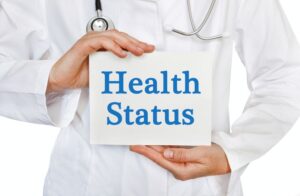
When you visit your dentist for a checkup, you expect them to look for and identify signs of issues like cavities, gum disease, and other conditions that directly affect your oral tissues. But dentists are not just oral health experts; they are also medical professionals. Indeed, they might even be the first person to notice signs of certain overall health issues. In this blog post, you will learn about some conditions that your dentist may play a role in diagnosing.
Diabetes
Dentists are often among the first healthcare professionals to spot warning signs of diabetes. Symptoms such as chronic gum disease, frequent oral infections, dry mouth, and slow-healing sores can all be associated with uncontrolled blood sugar levels. While these symptoms are not exclusive to diabetes, their presence during a routine dental examination can prompt your dentist to suggest a medical evaluation, potentially leading to a quicker diagnosis and better management of the condition.
Oral Cancer
Routine dental checkups serve as a critical opportunity to detect early signs of oral cancer. Dentists and their team members are trained to recognize unusual sores, red or white patches, persistent ulcers, or lumps within the mouth. These symptoms sometimes go unnoticed by patients, especially when they are painless at first. Early detection and treatment, which may start after a routine screening in your dentist’s office, can greatly increase the chances of successfully beating cancer.
Gastroesophageal Reflux Disease (GERD)
Gastroesophageal reflux disease, commonly known as GERD, is another medical condition that may first present symptoms in the mouth. Stomach acids that reach the oral cavity can erode dental enamel, causing sensitivity and visible wear. Dentists might also observe chronic bad breath or an inflamed throat. If such signs are detected, your dentist might discuss these observations and recommend consulting a physician for further investigation into possible underlying digestive issues.
Extreme Stress
The impact of stress on oral health is significant and often visible. People experiencing high levels of stress may grind or clench their teeth, a condition known as bruxism. Dentists can identify patterns of wear on teeth, as well as diagnose jaw pain and cracked teeth. Other signs of ongoing stress include gum problems or mouth ulcers. Recognizing these symptoms allows dentists to bring attention to the broader effects of stress on overall health and suggest strategies for managing it.
Dementia
Changes in oral health can sometimes be among the first indications of cognitive decline. Individuals in the early stages of dementia may begin to neglect their oral hygiene routines, leading to increased plaque, gum disease, and tooth decay. Dentists may notice these patterns during checkups and, in some cases, observe confusion or a lack of understanding during appointments. By recognizing these early signs, dentists can help prompt timely medical evaluation and support for cognitive health.
Your dentist can support both your oral and overall health! If they suggest you get tested for certain medical conditions, you should certainly comply.
Meet the Practice
At Whitinsville Family Dentistry, our team features four highly skilled dentists and a talented support team. We prioritize our patients’ overall health and do all we can to help them stay well from head to toe. If it is time for your next checkup or you have questions about our practice, contact our office at 508-234-8107.

